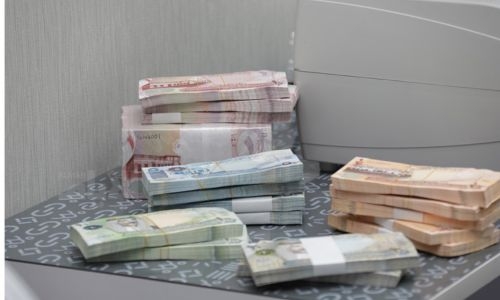The High Appeals Court in Manama has recently confirmed a seven-year prison sentence and deportation order for a man found guilty of counterfeiting Bahraini currency. The defendant was caught in 2023 for making counterfeit BD20 banknotes using methods similar to those used in the production of genuine currency. He planned to circulate the fake bills and use them for transactions. Additionally, the court found him guilty of defrauding an individual by promising to double their money in exchange for a loan of BD5,000. The victim was deceived into believing that the defendant had the ability to multiply banknotes through a fraudulent scheme.
Further investigations into the case revealed that the defendant had a history of similar scams. It was discovered that he relied on deception and trickery to defraud unsuspecting individuals. The defendant used basic materials like paper, charcoal, powder, dyes, chemicals, rulers, and adhesive tape to create the counterfeit bills. His elaborate scheme involved convincing victims to invest money with promises of high returns, only to leave them empty-handed in the end. This elaborate production of counterfeit currency and fraudulent activities have led to serious consequences for the defendant.
The ruling by the High Appeals Court serves as a warning to others engaging in similar criminal activities. Counterfeiting not only undermines the financial system but also poses a threat to the security of a country’s currency. By upholding the prison sentence and deportation order, the court sends a strong message that such behavior will not be tolerated. It is essential for authorities to crack down on counterfeiters to maintain the integrity of the monetary system and protect citizens from falling victim to financial scams.
The case highlights the importance of financial security measures and the need for vigilance in detecting counterfeit currency. It also emphasizes the significance of educating the public about ways to identify fake money. The defendant’s use of rudimentary materials to produce fake banknotes demonstrates the ease with which counterfeiters can operate if not stopped in time. By raising awareness and implementing stricter penalties for such crimes, authorities can prevent similar incidents and safeguard the national currency from being compromised.
In conclusion, the High Appeals Court’s decision to uphold the prison sentence and deportation order for the man convicted of counterfeiting Bahraini currency sends a clear message that fraudulent activities will not go unpunished. The elaborate scheme employed by the defendant to dupe victims and produce fake banknotes underscores the serious implications of financial fraud. Authorities must remain vigilant in combating such crimes to protect the financial security of the country. By enforcing strict penalties and educating the public about counterfeit detection, measures can be taken to prevent future incidents of counterfeiting and safeguard the integrity of the national currency.































